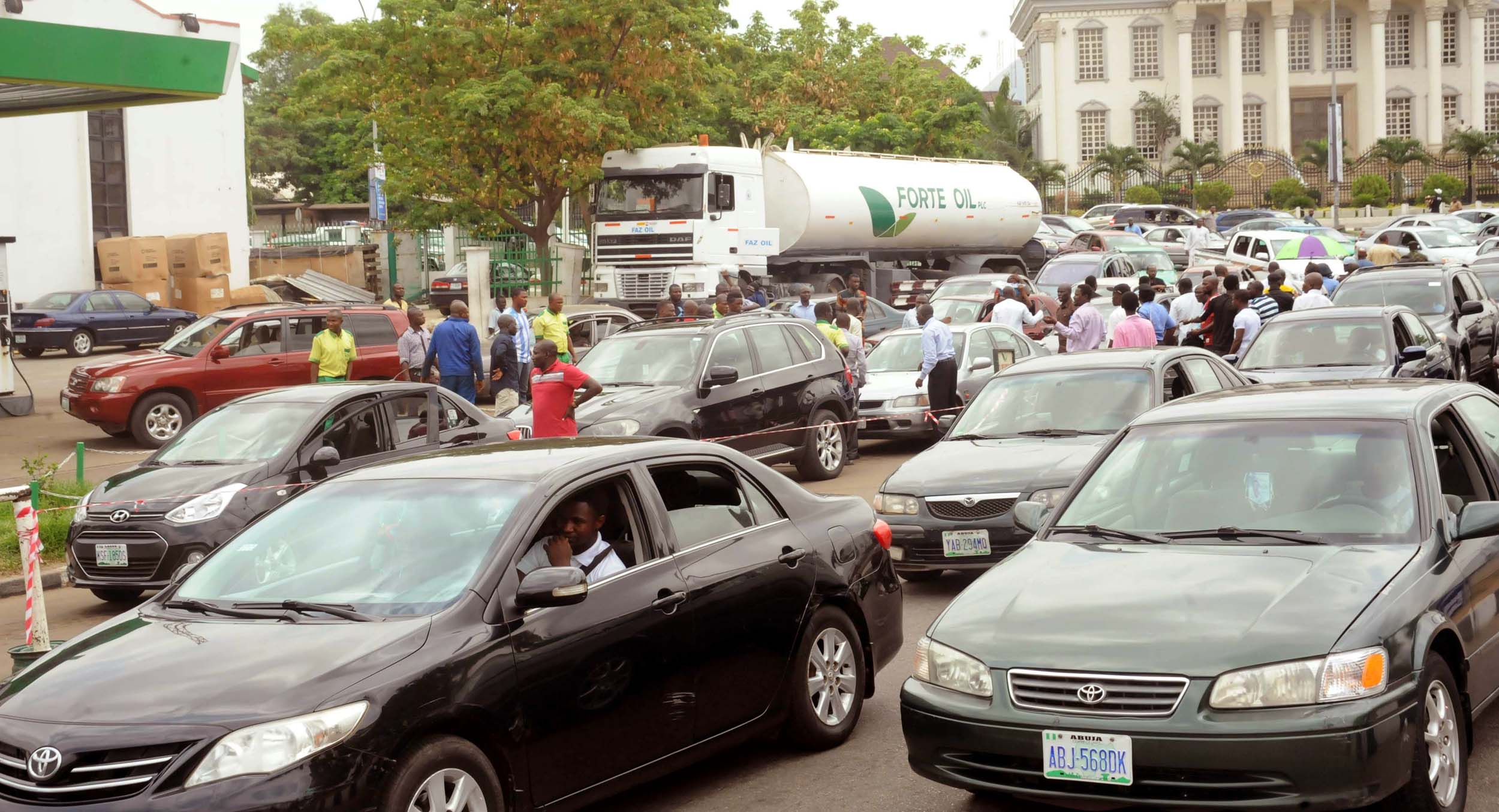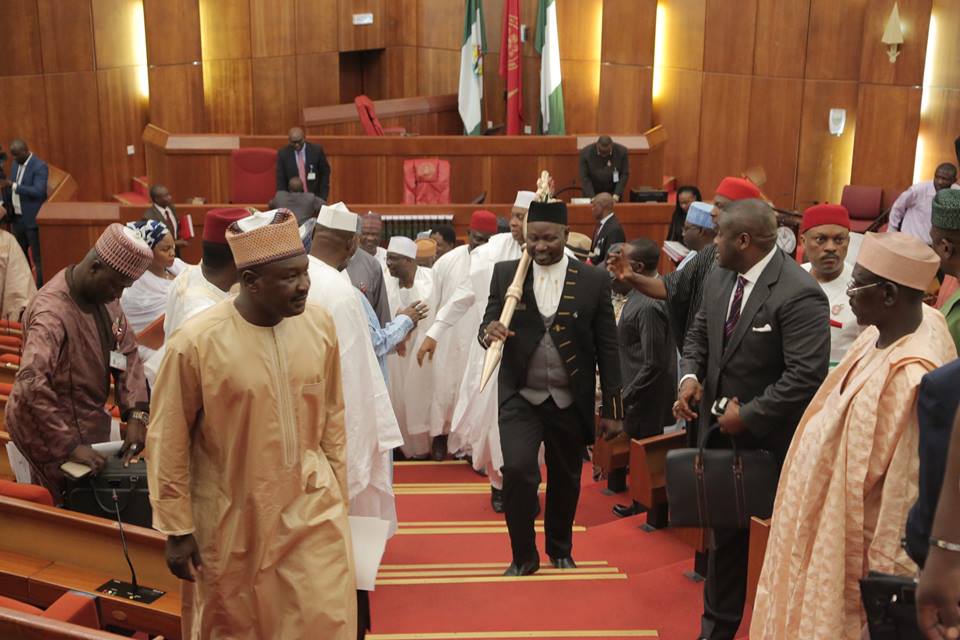It’s official: Nigeria’s central pot, the federation account, has hit one of its lowest balances in the history of the country.
Kemi Adeosun, minister of finance, disclosed this on Thursday after the national economic council meeting in Abuja.
As a result, deductions will not be made before April allocations are shared by the Federation Account Allocation Committee (FAAC).
Usually, debts incurred by various tiers of government are deducted as first-line charges and remitted to the creditors before the sharing of allocations.
Advertisement
Osun state recently got only N10 million as monthly allocation after the deduction of its obligations to banks and other agencies.
But Adeosun said the deductions will be deferred for April “in order to stimulate as well as revamp the economy”.
Many states are currently unable to pay salaries as a result of huge liabilities.
Advertisement
FEDERATION ACCOUNT
She said: “On the update of the financial situation of the states, it was discussed extensively that currently the federation account receipts are among the lowest that has been seen in recent memory. We are looking at N299 billion this month and that is because of the very low oil prices that were recorded in January and February.
“If you remember oil prices went as low as $28 and $31 and of course that has led to a very low federation account as a result of which I approached the president and the governors that we defer the loan deductions from the federation account entitlement.
“The aim of this is to ensure that we support them through this difficult period to be able to meet salary obligations. The government is very committed to stimulating the economy and recognises the ability of states to meet salary obligations is a very important part of getting the economy moving again.
Advertisement
“To that end the president approved that deferral. The states have been asked to submit financial data that would allow us to model and predict how much support in terms of loan deferrals we might need to give just to get through this period until the economy recovers.
“I need to emphasize that it is not a bail-out but a deferral, postponement of deductions just to allow the states to have the cash that they need to meet their salary obligation.
“I am very pleased to announce that all the governors endorsed the request to provide financial data, to work on biometric and other initiatives to cleanse out fraudulent entries on their payroll, you may call them ghost workers but it is being done at state levels very aggressively and the efficiencies that state governors have already committed to, they have all endorsed those things as part of this support that we are trying to put in place.”
ECONOMIC EFFECTS
Advertisement
On how long the deferrals are for, Adeosun said: ”The approval I have is for the current month but with the proviso. What we discussed is the current situation in the economy requires some actions and what we need to do is to understand the financial profile of states in detail so that we can understand how long we need to support them with loan deferrals.”
On the effect of the deferrals on the economy, she said: “I think I will switch to say what is the effect of non-payment of salaries on the economy, that for us is really the issue. We have go to put money into people’s pockets so that people start spending just to get the economy moving.
Advertisement
“Nobody stimulates the economy by austerity but by spending. So in some states as you know they state government is the highest employer of labour so if the state government is unable to pay, nothing happens.
“We have prioritised getting the states back into good financial health. Now part of that is this commitment to fiscal sustainability and that is why we have asked the states to commit to cleansing their payroll, commit to efficiency, maximising their Internally Generated Revenue (IGR). We have asked them to give us their financial data so that we can work together to create financial module and understand what government needs to do to support the states.”
Advertisement
The minister presented a report at the council meeting on the balance of excess crude account.
It now stands at $2.3 billion, a little increase as a result of accruing interests.
Advertisement
2 comments







Plans to take Nigeria’s economy off this slippery slope should be implemented soon.By slippery slope I mean, our economy should fast track means for diversification and end the mono-product economy culture once and for all. Just imagine, a whole giant of Africa’s federation account reading such amount all because we put all our eggs in the ‘oil-basket’.
All the same, kudos to the fiscal move by the finance minister.My question is how does this deferral affect the economy (positively) in the long run?
Never mind, there will be money to buy grass for Fulani cattle and buy lands in other parts of the country for the Fulani herdsmen